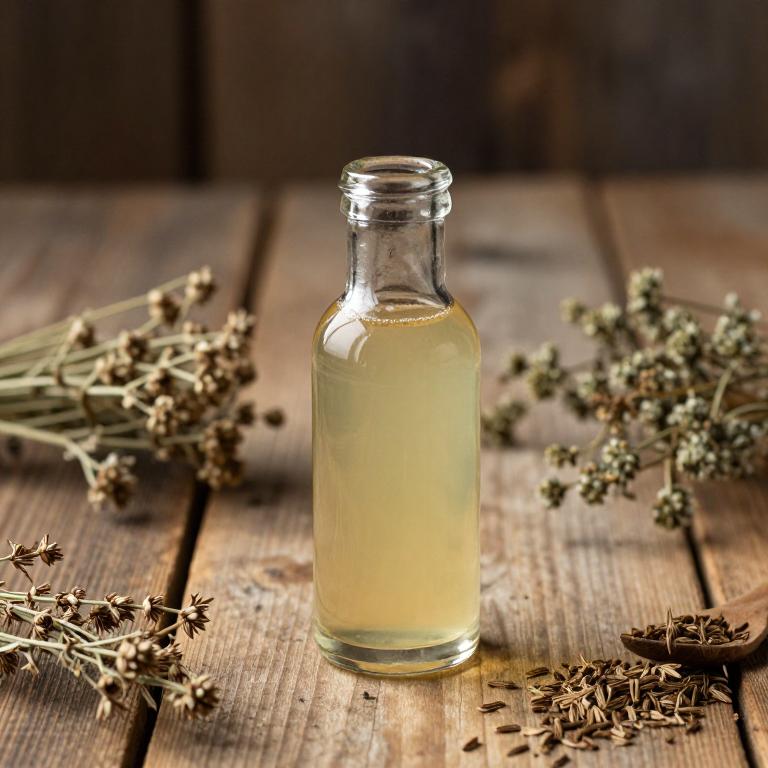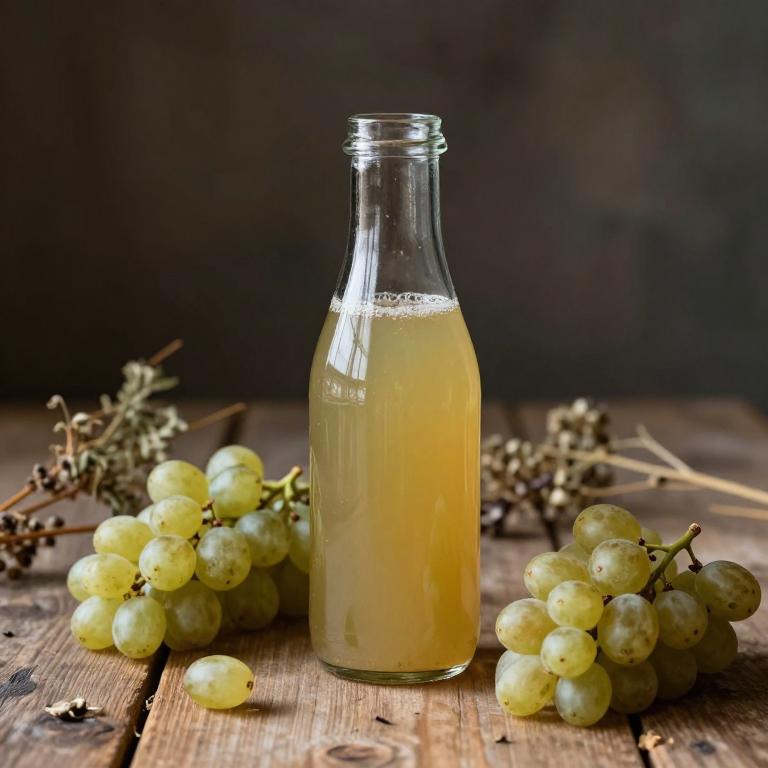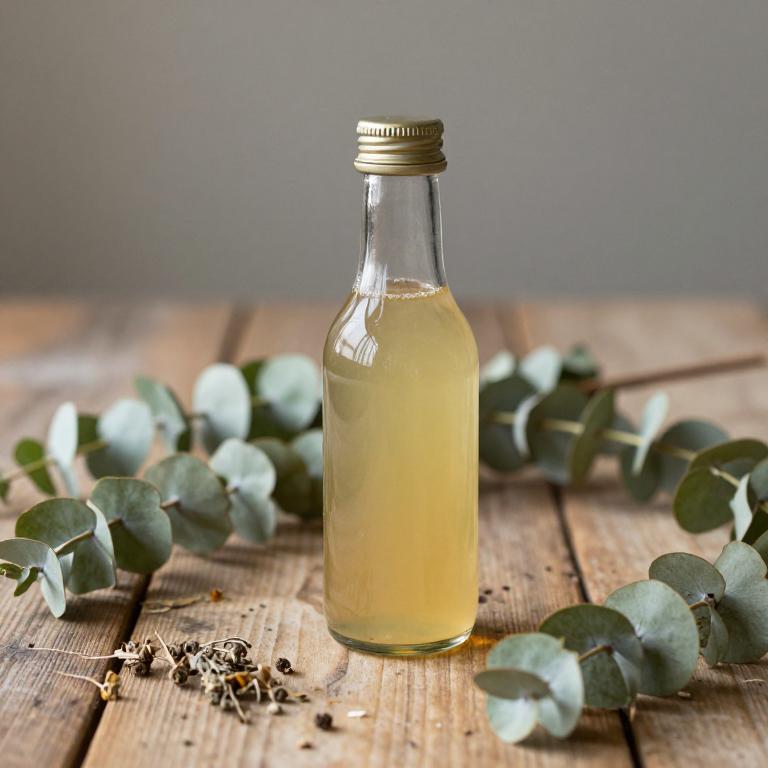10 Best Herbal Juices For Asthma

Herbal juices have gained attention as natural remedies for managing asthma symptoms, with certain herbs believed to possess anti-inflammatory and bronchodilating properties.
Commonly used herbs in asthma-friendly juices include ginger, turmeric, and licorice root, which may help reduce airway inflammation and improve lung function. While these juices are not a substitute for conventional asthma medications, they can complement medical treatments when used under professional guidance. However, it is important to note that some herbs may interact with asthma medications or exacerbate symptoms in sensitive individuals.
As such, individuals with asthma should consult a healthcare provider before incorporating herbal juices into their regimen.
Table of Contents
- 1. Ginger (Zingiber officinale)
- 2. Peppermint (Mentha piperita)
- 3. Stinging nettle (Urtica dioica)
- 4. Turmeric (Curcuma longa)
- 5. Salvia (Salvia officinalis)
- 6. Licorice (Glycyrrhiza glabra)
- 7. Cumin (Cuminum cyminum)
- 8. Common grape (Vitis vinifera)
- 9. Eucalyptus (Eucalyptus globulus)
- 10. Aloe vera (Aloe barbadensis)
1. Ginger (Zingiber officinale)

Zingiber officinale, commonly known as ginger, has been traditionally used for its medicinal properties, including potential benefits for respiratory health.
Recent studies suggest that ginger may help alleviate asthma symptoms by reducing inflammation and relaxing airway muscles. Ginger contains bioactive compounds like gingerol and shogaol, which have anti-inflammatory and bronchodilatory effects. Herbal juices made from fresh ginger root are often consumed to support respiratory function and ease breathing difficulties.
While ginger can be a complementary therapy for asthma, it should not replace prescribed medical treatments and should be used under the guidance of a healthcare professional.
2. Peppermint (Mentha piperita)

Mentha piperita, commonly known as peppermint, has been traditionally used for its therapeutic properties, including its potential benefits for respiratory health.
Peppermint herbal juices are rich in antioxidants and anti-inflammatory compounds that may help reduce airway inflammation, a common issue in asthma. Some studies suggest that the menthol in peppermint can act as a bronchodilator, helping to ease breathing in individuals with asthma. However, while peppermint may offer supportive benefits, it should not replace prescribed asthma medications and should be used under the guidance of a healthcare professional.
Overall, peppermint herbal juices can be a complementary natural remedy, but their effectiveness for asthma management requires further scientific validation.
3. Stinging nettle (Urtica dioica)

Urtica dioica, commonly known as stinging nettle, has been traditionally used in herbal medicine for its potential health benefits, including its possible role in managing asthma symptoms.
While scientific evidence is limited, some studies suggest that nettle may have anti-inflammatory and bronchodilating properties that could support respiratory health. Herbal juices made from fresh or dried stinging nettle leaves are often consumed to help reduce mucus production and ease breathing in individuals with asthma. However, it is important to consult a healthcare professional before using nettle juice, as it may interact with certain medications or cause allergic reactions in some people.
Overall, while urtica dioica may offer complementary support for asthma management, it should not replace conventional medical treatments.
4. Turmeric (Curcuma longa)

Curcuma longa, commonly known as turmeric, contains a bioactive compound called curcumin, which has been studied for its potential anti-inflammatory and antioxidant properties.
These properties may help reduce airway inflammation, a key factor in asthma, by inhibiting inflammatory pathways such as NF-κB. Some preliminary research suggests that curcumin may enhance the effectiveness of conventional asthma medications and reduce the need for corticosteroids. However, more clinical trials are needed to confirm its efficacy and safety in asthma management.
While turmeric can be consumed as a juice or supplement, it is important to consult a healthcare provider before using it as a therapeutic option for asthma.
5. Salvia (Salvia officinalis)

Salvia officinalis, commonly known as sage, has been traditionally used in herbal medicine for its potential respiratory benefits.
While there is limited scientific evidence directly linking sage to asthma relief, some studies suggest that its anti-inflammatory and antioxidant properties may help reduce airway inflammation and improve lung function. Sage contains compounds such as rosmarinic acid and flavonoids, which have shown promise in alleviating symptoms of respiratory conditions. However, it is important to note that sage should not replace conventional asthma treatments and should be used under the guidance of a healthcare professional.
As with any herbal remedy, individual responses may vary, and it is essential to consult a physician before incorporating sage into an asthma management plan.
6. Licorice (Glycyrrhiza glabra)

Glycyrrhiza glabra, commonly known as licorice, has been traditionally used in herbal medicine for its potential respiratory benefits, including its application in managing asthma symptoms.
The root of this plant contains compounds like glycyrrhizin and flavonoids, which may help reduce inflammation and bronchial secretions, easing breathing difficulties in individuals with asthma. Some studies suggest that licorice extract may act as a natural expectorant and anti-inflammatory agent, potentially supporting lung function. However, due to its potential side effects, such as increased blood pressure and fluid retention, it is important to consult a healthcare professional before using licorice-based herbal juices for asthma.
While licorice may offer complementary support, it should not replace prescribed asthma treatments without medical guidance.
7. Cumin (Cuminum cyminum)

Cuminum cyminum, commonly known as cumin, has been traditionally used in herbal remedies for its potential health benefits, including its possible role in supporting respiratory health.
While there is limited scientific evidence directly linking cumin to asthma relief, some studies suggest that its anti-inflammatory and bronchodilatory properties may help reduce airway inflammation and improve breathing. Cumin juice, made by grinding fresh cumin seeds and extracting the liquid, is often consumed in small quantities to harness these potential benefits. However, it is important to note that cumin should not replace prescribed asthma medications and should be used as a complementary therapy under the guidance of a healthcare professional.
Further research is needed to fully understand the efficacy and safety of cumin-based herbal juices in managing asthma symptoms.
8. Common grape (Vitis vinifera)

Vitis vinifera, commonly known as the common grape vine, has been explored for its potential health benefits, including its role in supporting respiratory health.
While it is not a cure for asthma, some herbal juices derived from Vitis vinifera may offer anti-inflammatory and antioxidant properties that could potentially aid in managing asthma symptoms. These juices, often made from grape skins or seeds, contain compounds like resveratrol, which have been studied for their ability to reduce oxidative stress and inflammation in the airways. However, it is important to note that there is limited scientific evidence directly linking Vitis vinifera herbal juices to asthma relief, and they should not replace conventional medical treatments.
Individuals with asthma should consult with a healthcare provider before incorporating any herbal supplements into their regimen.
9. Eucalyptus (Eucalyptus globulus)

Eucalyptus globulus, commonly known as the Australian eucalyptus, has been traditionally used for its medicinal properties, including its potential benefits for respiratory health.
Herbal juices made from eucalyptus globulus are believed to help alleviate asthma symptoms by acting as a natural bronchodilator and reducing inflammation in the airways. These juices contain essential oils like eucalyptol, which may help clear mucus and improve breathing. While some studies suggest that eucalyptus may support respiratory function, it is important to consult a healthcare professional before using it as a complementary therapy for asthma.
As with any herbal remedy, the safety and efficacy of eucalyptus globulus juices can vary, and they should not replace prescribed medical treatments.
10. Aloe vera (Aloe barbadensis)

Aloe barbadensis, commonly known as aloe vera, has been traditionally used for its potential health benefits, including its possible role in supporting respiratory health.
While scientific evidence is limited, some studies suggest that aloe vera may help reduce inflammation and improve mucous membrane health, which could be beneficial for individuals with asthma. Aloe vera juice is often consumed to support digestion and immune function, which are important for overall respiratory wellness. However, it is important to note that aloe vera should not be considered a substitute for conventional asthma treatments prescribed by healthcare professionals.
Individuals with asthma should consult their doctor before incorporating aloe vera or any herbal remedy into their treatment plan.